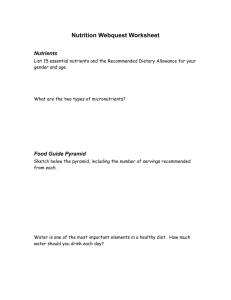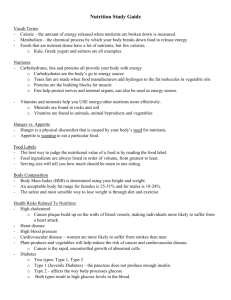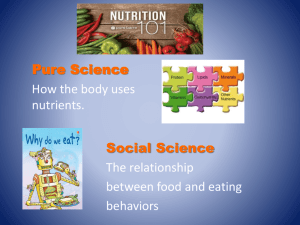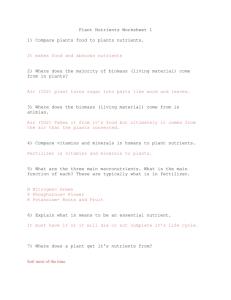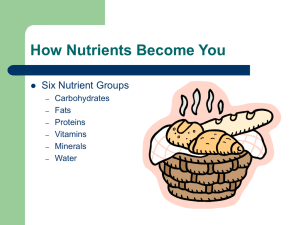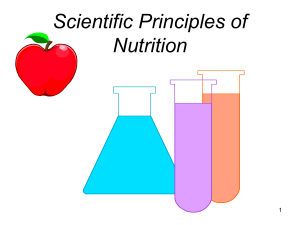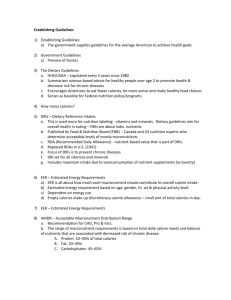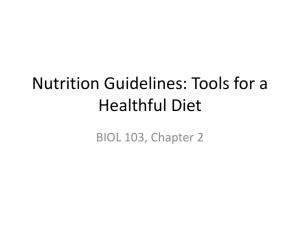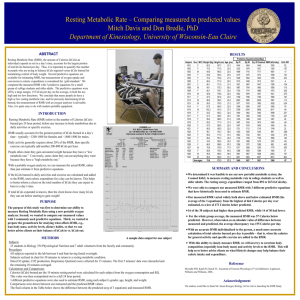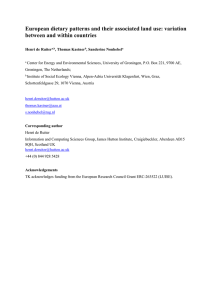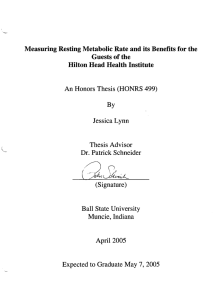File
advertisement
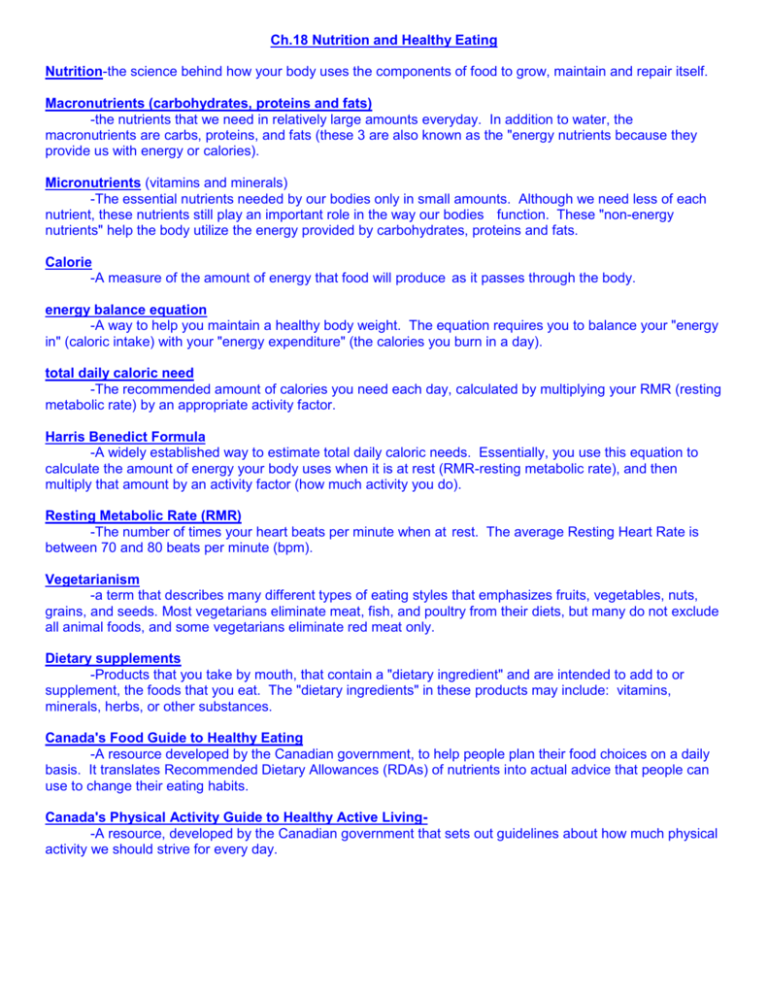
Ch.18 Nutrition and Healthy Eating Nutrition-the science behind how your body uses the components of food to grow, maintain and repair itself. Macronutrients (carbohydrates, proteins and fats) -the nutrients that we need in relatively large amounts everyday. In addition to water, the macronutrients are carbs, proteins, and fats (these 3 are also known as the "energy nutrients because they provide us with energy or calories). Micronutrients (vitamins and minerals) -The essential nutrients needed by our bodies only in small amounts. Although we need less of each nutrient, these nutrients still play an important role in the way our bodies function. These "non-energy nutrients" help the body utilize the energy provided by carbohydrates, proteins and fats. Calorie -A measure of the amount of energy that food will produce as it passes through the body. energy balance equation -A way to help you maintain a healthy body weight. The equation requires you to balance your "energy in" (caloric intake) with your "energy expenditure" (the calories you burn in a day). total daily caloric need -The recommended amount of calories you need each day, calculated by multiplying your RMR (resting metabolic rate) by an appropriate activity factor. Harris Benedict Formula -A widely established way to estimate total daily caloric needs. Essentially, you use this equation to calculate the amount of energy your body uses when it is at rest (RMR-resting metabolic rate), and then multiply that amount by an activity factor (how much activity you do). Resting Metabolic Rate (RMR) -The number of times your heart beats per minute when at rest. The average Resting Heart Rate is between 70 and 80 beats per minute (bpm). Vegetarianism -a term that describes many different types of eating styles that emphasizes fruits, vegetables, nuts, grains, and seeds. Most vegetarians eliminate meat, fish, and poultry from their diets, but many do not exclude all animal foods, and some vegetarians eliminate red meat only. Dietary supplements -Products that you take by mouth, that contain a "dietary ingredient" and are intended to add to or supplement, the foods that you eat. The "dietary ingredients" in these products may include: vitamins, minerals, herbs, or other substances. Canada's Food Guide to Healthy Eating -A resource developed by the Canadian government, to help people plan their food choices on a daily basis. It translates Recommended Dietary Allowances (RDAs) of nutrients into actual advice that people can use to change their eating habits. Canada's Physical Activity Guide to Healthy Active Living-A resource, developed by the Canadian government that sets out guidelines about how much physical activity we should strive for every day.
